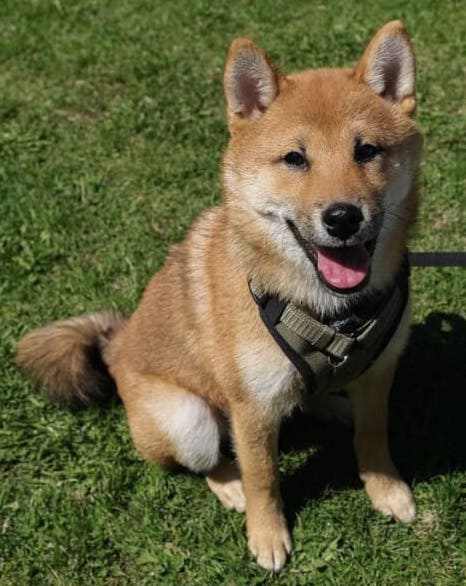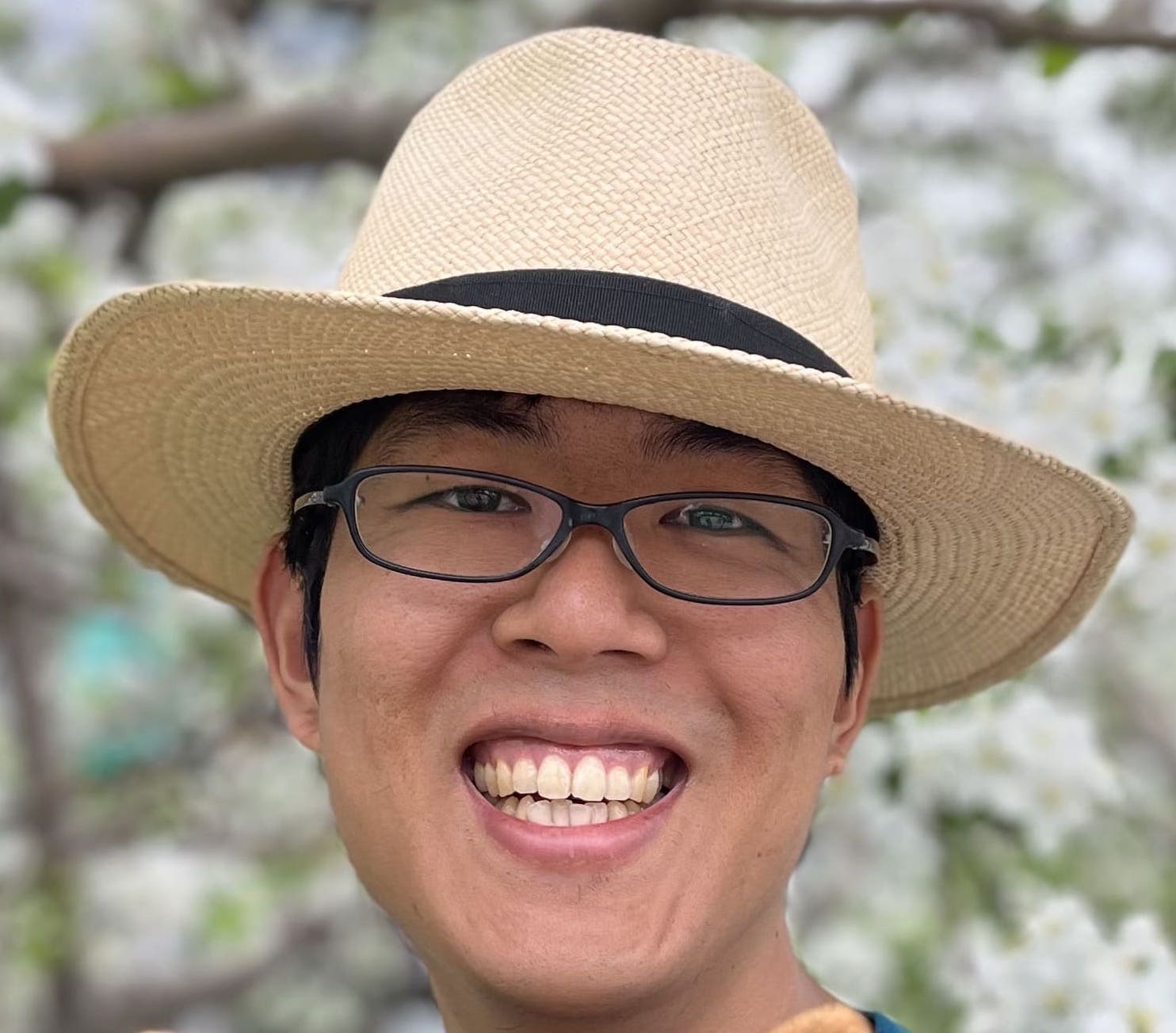
Harada sensei! Why do you say きたぐち(北口)'north exit' instead of きたくち even if you say くち(口)'mouth' instead of ぐち?
That's a great question! In Japanese, when two words combine, the sound of the second word sometimes change. I will teach you when such a sound change happens and when not!


Thank you!
What is rendaku?
In Japanese, when two words combine in the process called compounding, the word initial voiceless consonant in the second word may change to its voiced counterpart, as shown in the following table.
| Word1 | Word2 | Word1-Word2 | Sound change | |
| (1) | [kami] 'god' | [tana] 'shelf' | [kamidana] 'Shinto altar' | t -> d |
| (2) | [saba] 'mackerel' | [sɯʃi] 'sushi' | [sabazɯʃi] 'mackerel sushi' | s -> z |
| (3) | [te] 'hand' | [tsɯkɯɾi] 'make' | [tedsɯkɯɾi] or [tezɯkɯɾi] 'handmade thing' | ts -> ds or z |
| (4) | [mija] 'palace' | [ʃima] 'iland' | [mijad͡ʒima] 'Miyajima island' | ʃ -> d͡ʒ |
| (5) | [hana] 'nose' | [t͡ʃi] 'blood' | [hanad͡ʒi] 'nosebleed' | t͡ʃ -> d͡ʒ |
| (6) | [te] 'hand' | [kami] 'paper' | [tegami] 'letter' | k -> g |
| (7) | [tand͡ʒo] 'birht' | [çi] 'day' | [tand͡ʒobi] 'birthday' | ç -> b |
| (8) | [mɯʃi] 'insect' | [ha] 'tooth' | [mɯʃiba] 'cavity' | h -> b |
| (9) | [te] 'hand' | [ɸɯkɯɾo] 'bag' | [tebɯkɯɾo] 'gloves' | ɸ -> b |
In (1)-(3), [t], [s], and [ts] in Word2 - [tana], [sɯʃi], and [tsɯkɯɾi] - change to their voiced counterparts, i.e., [d], [z], and [ds]. But for [tsɯkɯɾi], it can also change to [tezɯkɯɾi], as [z] an [dz] are often in free variation for many Japanese speakers, i.e., the two sounds are often interchangeable. As for (4), while the word initial [ʃ] in Word2 undergoes a sound change, becoming the affricate [d͡ʒ], it is not the voiced counterpart of the fricative [ʃ]. This irregularity is considered to happen because [ʒ], the voiced counterpart of [ʃ], is not typically used in Japanese, and [d͡ʒ] and [ʃ] are similar sound; they share the same place of articulation, i.e., here the place of tongue in pronouncing the sound. In (5)-(6), [t͡ʃ] and [k] in Word2 change to their voiced counterpart, [d͡ʒ] and [g]. Lastly in (7)-(9), [ç], [h], and [ɸ] in Word2 all change to [b], which is not the voiced counterpart of any of the sound. How can we explain the sound change? First, [ç], [h], and [ɸ] are the allophones of the same phoneme /h/. Second, the glottal fricative /h/ is analyzed as originating from the voiceless bilabial stop /p/, which underwent a historical change, becoming /h/ Japanese currently uses. Notice that [b] is the voiced counterpart of [p], so it is now no wonder why [ç], [h], and [ɸ] in Word2 all change to [b] in (7)-(9).
Rendaku does not always happen. So when is it prevented?
While rendaku often happens, it does not always happen. In this section, I will describe the following three types of factors that prevent rendaku (In this section, I do not use IPAs as the detail transcription of sounds is not necessary).
No rendaku rule
- When the second word in a compound is a loan word, rendaku generally does not occur.
- Lyman's Law: When the second word contains a voiced obstruent, rendaku generally does not occur.
- Right Branch Condition: Rendaku occurs only when the relevant consonant appears in a right-branch word in the at the lowest level.
Rule 1
An example of a word where rendaku is prevented due to Rule1 is yakyuusenshu 'baseball player'. This word consists of two words, yakyuu 'baseball' and senshu 'player'. Crucially, the second word is a loan word from Chinese, and thus Rule1 prevents the whole word becoming yakyuuzenshu. On the other hand, when yakyuu 'baseball' and suki 'like' combine together, the resulting word is yakyuuzuki 'baseball fan' instead of yakyuusuki because suki is a Yamato Kotoba, i.e., a word native to the Japanese language and thus Rule 1 does not prevent rendaku.
Rule 2
In Rule 2, the presence/absence of a voiced obstruent in the second word is crucial in availability/unavailability of rendaku. Obstruent sounds consist of three kinds of sounds, i.e., plosive sounds, fricative sounds, and affricate sounds. I will present words with a plosive, a fricative, and an affricate, to show how Lyman's Law works.
First, hitoritabi 'solo trip' is a word consisting of hitori 'solo' and tabi 'trip' with a voiced plosive [b]. As a result, the second word does not undergo rendaku and the whole word is not hitoridabi.
Next, consider the word takarakuji 'lottery'. This word consists of takra 'treasure' and kuji 'drawing' with a voiced affricate j/[d͡ʒ]. As a result, the second word does not undergo rendaku and the whole word is not takaraguji.
Lastly, consider the word natsukaze 'summer cold'. This word consists of natsu 'summer' and kaze 'cold' with a voiced fricative z. As a result, the second word does not undergo rendaku and the whole word is not natsugaze.
Rule 3
Rule 3 says that the internal structure of words affects how rendaku occurs. Consider first the following two compound words from Otsu (1989).
- oo-tako-zuki 'great lover of octopi'
- oo-dako-zuki 'lover of big octopi'
Both of the compound words above consist of the same elements, oo 'big/great', tako 'octopi', and suki 'like'. However, their meanings are different, and crucially the two words have different number of the occurrences of rendaku. First, the difference in their meanings can be explained if we assume the two words have the two different structures below.
As shown below, it can be analyzed that the difference in the numbers of occurrences of rendaku has caused the difference in their meanings. First, the above two words can be analyzed to have the following
ちゅうごくvsかんこく:天国、本国、南国
Words with rendaku in Genki I and Tobira
| Words in Genki I | ||
| いたみ | とめ | いたみどめ |
| いり | くち | いりぐち |
| きた | くち | きたぐち |
| きん | しょ | きんじょ |
| けい | さい | けいざい |
| こ | とも | こども |
| この | ころ | このごろ |
| たん | さく | たんざく |
| たんじょう | ひ | たんじょうび |
| ちゅう | こく | ちゅうごく |
| て | かみ | てがみ |
| で | くち | でぐち |
| て | ふくろ | てぶくろ |
| とき | とき | ときどき |
| どの | くらい | どのぐらい |
| ひと | ひと | ひとびと |
| まゆ | け | まゆげ |
| むし | は | むしば |
| よう | ひ | ようび |
| Words in Tobira | ||
| Word1 | Word2 | Word1-Word2 |
| えん | せつ | えんぜつ |
| おお | こえ | おおごえ |
| お | かわ | おがわ |
| おし | はな | おしばな |
| おち | は | おちば |
| がまん | つよい | がまんづよい |
| かみ | たな | かみだな |
| かみ | たのみ | かみだのみ |
| き | ふん | きぶん |
| きょうみ | ふかい | きょうみぶかい |
| きん | しょ | きんじょ |
| きん | たい | きんだい |
| くさ | はな | くさばな |
| くに | くに | くにぐに |
| (くれなずむ)ゆう | くれ | (くれなずむ)ゆうぐれ |
| けい | さい | けいざい |
| こい | ひと | こいびと |
| さい | ほう | さいぼう |
| さつき | はれ | さつきばれ |
| さま | さま | さまざま |
| じゅう | ふん | じゅぶん |
| しょう | し | しょうじ |
| じん | しゃ | じんじゃ |
| ずい | ぶん | ずいぶん |
| せつ | ふん | せつぶん |
| せん | そ | せんぞ |
| でき | こと | できごと |
| て | さわり | てざわり |
| て | つくり | てづくり |
| にんたい | つよい | にんたいづよい |
| はたらき | さかり | はたらきざかり |
| ばん | くみ | ばんぐみ |
| ひとり | くらし | ひとりぐらし |
| ボール | かみ | ボールがみ 'cardboard' |
| まけず | きらい | まけずぎらい |
| みやげ | はなし | みやげばなし |
| むかし | はなし | むかしばなし |
| むだ | つかい | むだづかい |
| わたり | とり | わたりどり |
| わたりどり |